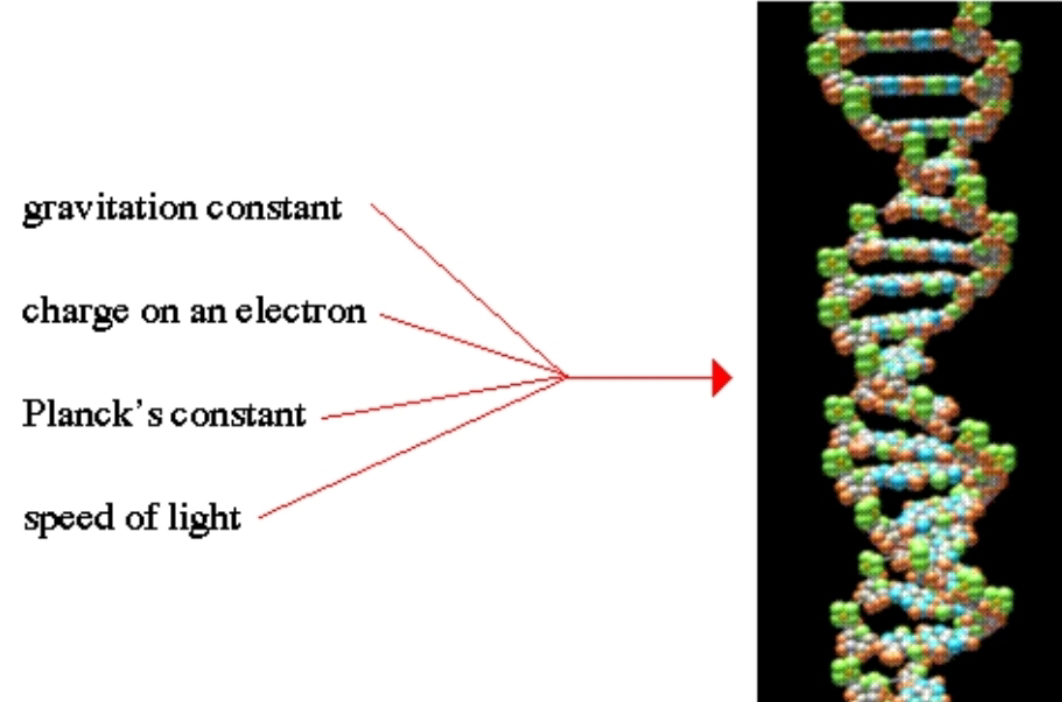Young-Earth Creationism and the Negation of the Anthropic Principle
Jeremiah 33:
Thus says the Lord, 'If My covenant for day and night stand not, and the fixed patterns of heaven and earth I have not established,
then I would reject the descendants of.. David My servant..”
The anthropic principle posits that the fundamental constants and laws of the universe are finely tuned to allow for the existence of life, an intelligent life capable of observation. It's a profound concept that invites us to consider the possibility of a universe designed with life in mind. However, young-Earth creationism, with its insistence on a literal interpretation of the Genesis creation narrative and a 6,000-year-old Earth, directly contradicts the anthropic principle, negating its implications in several ways.
Rejection of Cosmic Timescales: The anthropic principle implicitly relies on vast cosmic timescales. The universe's 13.8-billion-year history has allowed for the formation of stars, galaxies, and complex elements necessary for life. Young-Earth creationism, with its compressed timeframe, denies the necessity of these lengthy processes. This renders the fine-tuning of the universe irrelevant, as life is assumed to have been miraculously inserted rather than arising through natural processes over eons.
Ignoring the Interconnectedness of Life and the Universe: The anthropic principle highlights the deep connection between life and the universe. It suggests that the universe's properties are intertwined with the possibility of life's existence. Young-Earth creationism severs this connection. By insisting on a recent creation, it implies that life is an isolated phenomenon, superimposed onto a sudden universe that did not unfold in a miraculous way designed with it in mind.
Dismissing the Significance of Fine-Tuning: The anthropic principle raises questions about the improbable fine-tuning of the universe's constants. Even slight alterations in these constants could have rendered the universe inhospitable to life. Young-Earth creationism dismisses the significance of this fine-tuning, attributing it to ex nihilo divine intervention rather than acknowledging its potential implications for understanding the universe's purpose over an eon of time.
Limiting the Scope of God's Creativity: The anthropic principle expands our understanding of God's creative power by revealing the intricate design woven into the fabric of the universe. Young-Earth creationism, by confining creation to a recent event, limits our appreciation of God's work. It portrays creation as a one-time act rather than an ongoing process unfolding across vast cosmic timescales.
In conclusion, young-Earth creationism's adherence to an english literal interpretation of Genesis and a young Earth fundamentally clashes with the anthropic principle. It rejects the vast cosmic timescales required for the emergence of life, undermines the interconnectedness of life and the universe, dismisses the significance of fine-tuning, and limits the scope of God's creativity. By clinging to a narrow interpretation of scripture, young-Earth creationism misses out on the awe-inspiring implications of the anthropic principle, which invites us to contemplate a universe designed with life and purpose in mind. Embracing a more expansive view of creation that incorporates scientific understanding can deepen our appreciation for both God's work and the wonders of the cosmos.




Comments
Post a Comment